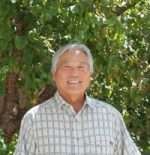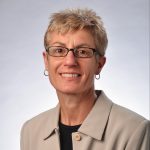Ecologists Convene in Montreal
The 2022 ESA & CSEE Joint Meeting in Montreal was the first in-person annual meeting since 2019, and like we’ve all probably experienced at recent re-convenings, it was truly a week of inspiration, learning, and connection! We were impressed with the volume of presentations, workshops, and sessions that emphasized the human dimensions of ecological systems, resilience, Indigenous knowledge, and welcoming ecologists from all human identities to bring our whole selves to our ecological research, education, and action.
The convention center was filled with energy from the 3,166 people that attended in person. Almost 300 additional attendees participated in the limited virtual program. The exciting scientific program was packed with sessions, including 7 Plenary Sessions, 23 Symposia, 49 Organized Oral Sessions, 17 Inspire Sessions, 40 Workshops, 16 Short Courses, 20 Special Sessions, and 1 Field Trip. Over 1600 talks were presented in 284 Contributed Oral Sessions. Over 900 posters were presented in 53 Contributed Poster Sessions and 32 Latebreaking Poster Sessions.
ESA partnered with the Canadian Society for Ecology and Evolution (CSEE), which brought around 600 attendees to Montreal. CSEE organized many events for their members, including the CSEE Council Meeting and General Meeting, 3 awards sessions, and a mixer for students and postdocs. CSEE offers a public plenary each year, and this year’s was held at Montreal’s Jardin Botanique on Wednesday evening. The CSEE program of events concluded with a Friday workshop, SWEEET (Symposium for Women and Equity-seekers in Ecology & Evolution Today): “Reflecting on Equity, Diversity, and Inclusion Initiatives in Canada and the US: What Can We Learn from Each Other?”
ESA took several precautions to help limit the spread of COVID-19. All attendees, staff, and vendors were required to wear a mask while inside the convention center, with medical grade masks (N95, KN95, surgical or multi-layered) highly recommended. ESA hired security staff to circulate in key areas to remind anyone who was not masked, which was generally reminding people who forgot to replace their mask after eating or drinking. Masks were available by request at the Registration desk, and staff handed out several hundred masks over 6 days.
Registrants selected one of three lanyard options, with different colors (green, yellow, red) to indicate their comfort level for physical distancing. We provided physical distancing wherever possible in the session rooms and exhibit hall, with posters and exhibiters spaced further apart than past years. Posters were set individually rather than in rows and there were wider aisles between tables and booths. Refreshments were available during all poster sessions and were placed in the back of the exhibit hall, away from posters and exhibits. For evening mixers and the Closing Network Reception, we used roof top space at the Palais des Congrès de Montréal to maximize air flow.
Attendees could report any mask violations using a form on the meeting website, and we encouraged any attendees who tested positive for COVID-19 to let us know through email. Twenty-three COVID-19 cases were reported between August 14th and September 3rd.
In 2019, the Meetings Committee decided to make some important changes to the meeting program to improve the overall experience for attendees, presenters and exhibitors:
- More focused sessions: Shorter oral and poster sessions (90 minutes)
- Shorter talks: 15 minutes for contributed & organized oral, 20 minutes for symposia
- More time to network: Longer coffee breaks (30 minutes)
- Easier to follow schedule: Consistent break schedule for all oral session types
- Easier to propose a session: 4 speakers for symposia, 6 speakers for organized oral
- Fewer conflicts: No overlap between talks and posters; lunchtime workshops started slightly later to offer a little more time for room turnover
- No Friday presentations: Talks and posters were Monday – Thursday
- More time for hands-on learning: Workshops and short courses on Friday morning
- New Latebreaking time: Thursday afternoon
Due to the virtual meeting format in 2020 and 2021, the 2022 meeting was the first time these changes were experienced by attendees. In the post-meeting survey, 87% of attendees indicate they were satisfied or very satisfied with these improvements. In addition, 93% of those who attended gave a presentation or organized a session; 84% of those who attended the meeting did it to network with peers; 79% of those who attended the meeting felt their expectations were met or exceeded.
The Meetings Committee values attendee feedback and is always looking for ways to improve the meeting to meet the ecological community’s needs.
As we look ahead to the 2023 Annual Meeting in Portland, we will be piloting a limited number of hybrid Invited Sessions (Organized Oral, Symposia and Inspire) along with holding traditional in-person invited sessions. Hybrid sessions will include a mixture of speakers who present in person in the session room in Portland and speakers who present remotely through Zoom from any location. The goal of this pilot is to broaden participation and increase inclusion through remote participation.
We would like to sincerely thank Nyeema Harris for serving as Program Chair for the 2022 Annual Meeting. Her vision and guidance helped to make this meeting so successful. We would also like to thank the Program Subcommittee for their work on the meeting program and the Meetings Committee for their overall long-term planning prior to the meeting. We also sincerely thank the ESA staff for their hard work to ensure members learned, enjoyed and networked during the meeting, especially the Meetings staff.
Building on the success of the 2022 Montreal Meeting, we hope you will join us in 2023 in Portland. Calls for proposals are open now.
See you next year in Portland!
| Dennis Ojima | Sharon Collinge |
|---|---|
| Past-President, ESA | President, ESA |
 |
 |
 |
 |